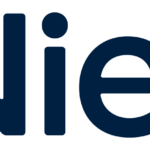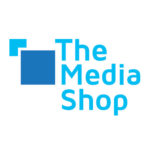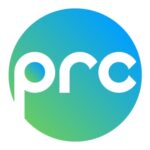 The Nielsen’s Advanced Analytics team has carried out numerous Media ROI (Return on Investment) studies over the past 3 years. Reading, i.e. Digital and Print combined, consistently deliver the greatest ROI for every R1 spent than any other medium.
The Nielsen’s Advanced Analytics team has carried out numerous Media ROI (Return on Investment) studies over the past 3 years. Reading, i.e. Digital and Print combined, consistently deliver the greatest ROI for every R1 spent than any other medium.
17 brands, across six categories which include toothpaste, analgesics, coffee, snacks and chips, chocolate and liquor (spirits, wine and ciders) were analysed over a 156-week period, resulting in over 2,500 weeks of data being analysed. Actual sales from the Nielsen retail audit were used to measure the ROI.
The Advanced Analytics team conducts very sophisticated regression analysis down to individual store level that includes most elements of the marketing mix. Price of own and competitive brands, national distribution, promotions that includes for example gondola ends and in-store promoters, advertising spend and many other elements. Because the FMCG manufacturers commission and pay for these media ROI analysis, the data is based on actual media expenditure. Previous synergy and other media ROI analysis, conducted by the PRC and other media owners was based on way more inaccurate Adindex rate card data; not actual spend as in this analysis. Never before, in SA media research efficacy history, has an analyses been conducted over such a long period.
“The m ost difficult aspect of any marketing ROI analysis is to isolate and measure the effects of one particular aspect of the marketing mix,” says Peter Langschmidt, consultant to the PRC (The Publisher Research Council). “There are hundreds of combinations, and media has to be switched on and off continually and sales measured if the regression is going to truly identify the particular advertising medium as the cause of the sales change. This is the primary reason why these case studies are on-going for over three years and are truly robust.”
ost difficult aspect of any marketing ROI analysis is to isolate and measure the effects of one particular aspect of the marketing mix,” says Peter Langschmidt, consultant to the PRC (The Publisher Research Council). “There are hundreds of combinations, and media has to be switched on and off continually and sales measured if the regression is going to truly identify the particular advertising medium as the cause of the sales change. This is the primary reason why these case studies are on-going for over three years and are truly robust.” TABLE 1. Median Short-term ROI (Return on Investment) for every R1 invested in each medium.
TABLE 1. Median Short-term ROI (Return on Investment) for every R1 invested in each medium.
As the table indicates, for every rand spent, digital performs best and returns R2.30 while print at R1.35 is in third place. A simple average of these two “read” media is a whopping R1.83. So just like a scholar or student investing their time in reading text books or notes to maximise recall and pass their exams, so this study has proved that a marketing investment is also maximised when consumers read, absorb and act upon brand information.
Radio is the only medium where advertisers do not recoup their investment and get a negative ROI.
Adriaan Nel, Lead Advanced Analytics, Nielsen South Africa notes, “This analysis addresses direct short term media impact (3-4 weeks), while more work is needed, our analysis suggests that the long term impact of advertising to be approximately 2 to 3 times that of the short term returns in this report.”
Read media, whether newspapers, magazines or online, provides consumers with an unsurpassed depth of information, unlike any other medium. The ability to assimilate information at one’s own pace and re-read on multiple occasions is an oft overlooked fact. “The PRC have been investigating these inherent strengths of the written word for a few years now,” says Langschmidt, “but these 17 brand studies now provide strong evidence that this detailed product information, prices and comparisons on hundreds of brands and store locations translates directly into more sales at the till and a better advertising ROI.”
The full presentation can be viewed at http://www.prc.za.com/2018/10/17/digital-and-print-combined-consistently-deliver-the-greatest-roi/
- MRF Unveils Latest MAPS® Data - 20th February 2025
- The BRC announces changes to the board and updates for 2025 - 17th December 2024
- Top 50 DSTV TV programmes – October 2024 - 12th November 2024




